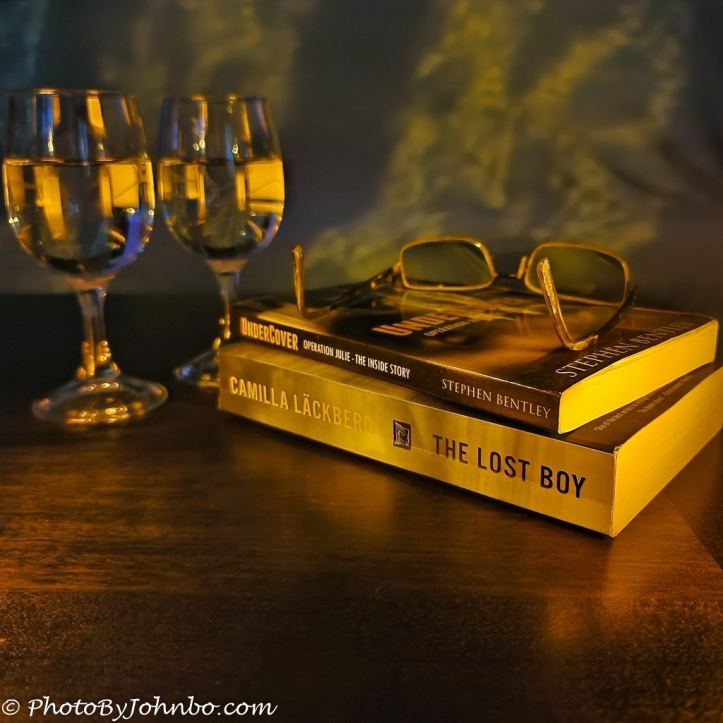I don’t do much experimentation with still life images, but regular readers may recall this image from my review of the Samsung S20 Ultra cell phone. The image was the result of a test of low-light capabilities of the camera. A couple of books, two wine glasses filled with water, and an old pair of glasses were the only props.
About the photo: I used a tripod with a cell phone/tablet mount to hold the camera for the 1 second, f/1.8, 1000 ISO image. It was shot in pro mode creating a DNG file. The lighting was simple. I darkened the room and lit the subject with two LED holiday candles. I used a coffee table to hold the subject and covered the sofa in the background with a fitted green sheet.
One of the problems with longer exposures is camera movement during the exposure, especially when one manually presses the shutter button. To keep the camera from shaking, I didn’t press the shutter button. I could have used the delay timer built into the camera, but I turned on the voice control option. All I had to do was say the word, “Shoot” to trip the shutter. The camera also understands the command “timer” and will activate a 10-second timer delay before shooting.
I used Adobe Lightroom to process the image, cropping the image from 4×3 format to square. No other edits were made to the image. As I noted in my earlier review, at f/1.8, the focus is really tight. Adjusting focus manually, the camera puts a green outline around the objects in focus. I focused on the books, and as a result, the two wine glasses are outside of the plane of focus, therefore slightly “fuzzy.” If your browser allows it, you can click on the image for a closer look. I also happen to have this photo in original resolution posted on my Flickr page. You can see a detailed image at the original crop size of 2908×2908 pixels here.
John Steiner


Amazing to be able to control a camera with your voice! They should do that with cameras that are not phones.
Indeed. Yet another reason camera sales are dwindling in comparison.
A stunning image John and thank you for explaining the process too. This kind of still life would work well for poetry too.
Thanks. I should probably try more like it. I had fun making it.